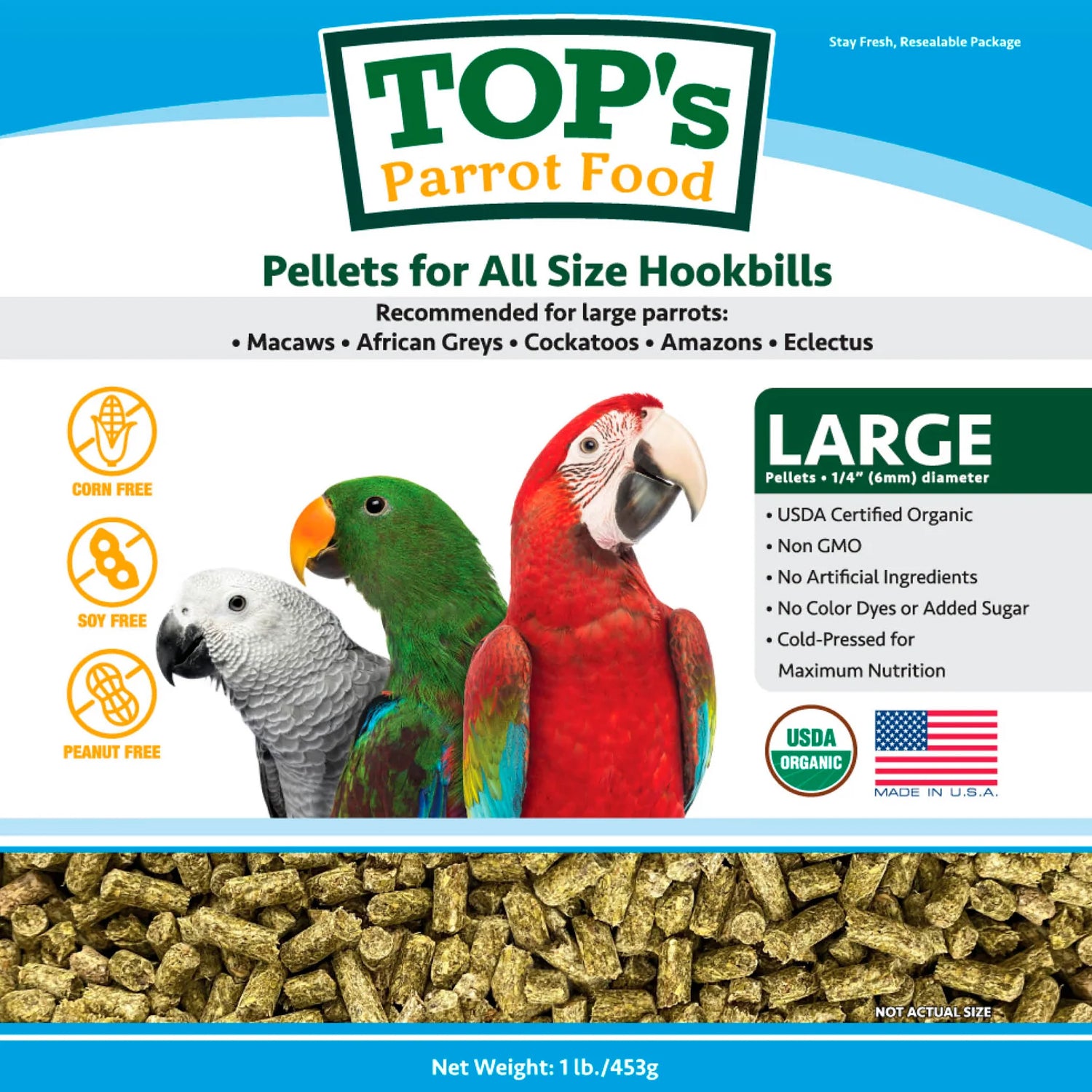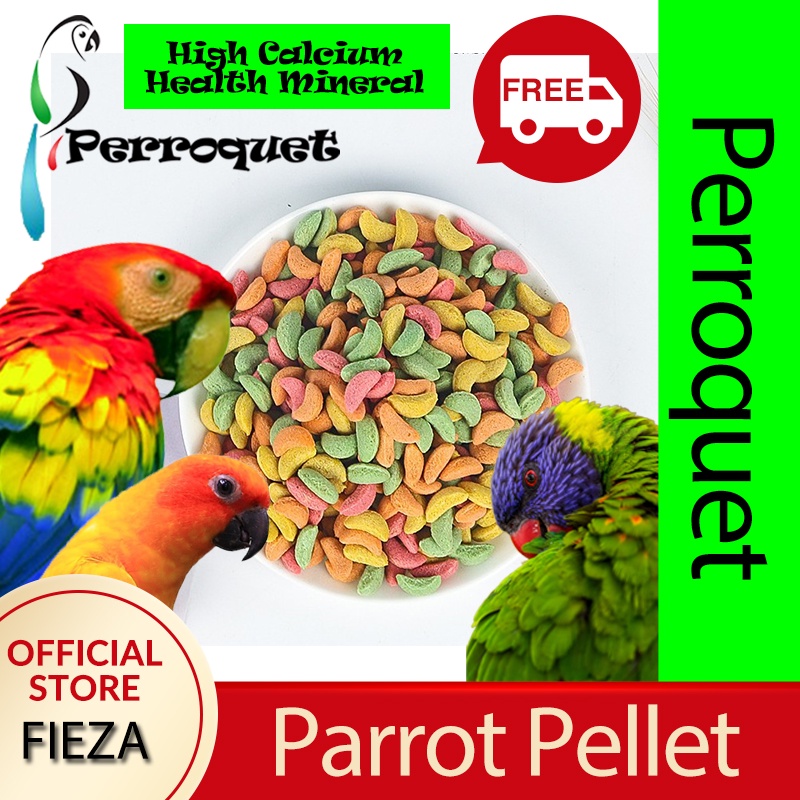Boosting Your Parrot’s Health: A Deep Dive into Pellets with Immune System Boosters
Introduction:
Parrots are intelligent, vibrant creatures that bring joy and companionship to our lives. As responsible parrot owners, we strive to provide them with the best possible care, and nutrition plays a crucial role in their overall health and well-being. While seed-based diets were once the norm, the understanding of avian nutrition has evolved significantly. Today, parrot pellets form the foundation of a balanced diet, offering a more comprehensive and consistent nutritional profile. Furthermore, the availability of parrot pellets fortified with immune system boosters has revolutionized parrot care, offering an extra layer of protection against disease and illness. This article delves into the world of parrot pellets with immune system boosters, exploring their benefits, key ingredients, selection criteria, and practical feeding guidelines.
The Importance of a Balanced Diet for Parrots:
In the wild, parrots consume a diverse range of foods, including fruits, seeds, nuts, flowers, and insects. This varied diet provides them with a wide array of essential nutrients. Seed-based diets, commonly offered to pet parrots in the past, are often deficient in crucial vitamins, minerals, and amino acids. These deficiencies can lead to a host of health problems, including:
- Vitamin A Deficiency: Causes respiratory infections, skin problems, and poor vision.
- Calcium Deficiency: Leads to bone problems, egg-binding in females, and seizures.
- Obesity: High-fat seed diets contribute to weight gain and related health issues.
- Feather Plucking: Nutritional imbalances can trigger stress and feather plucking.
- Reduced Lifespan: Poor nutrition ultimately shortens a parrot’s lifespan.
Pelleted diets address these shortcomings by providing a nutritionally complete and balanced foundation for a parrot’s diet. Each pellet is formulated to contain the optimal ratio of proteins, carbohydrates, fats, vitamins, and minerals, ensuring that your parrot receives the nutrients it needs to thrive.
What are Parrot Pellets with Immune System Boosters?
Parrot pellets with immune system boosters are specially formulated to provide a complete and balanced diet while also strengthening the parrot’s natural defenses against disease. These pellets contain the same essential nutrients found in standard parrot pellets, but they are enriched with specific ingredients known to support and enhance the immune system. These ingredients work synergistically to:
- Stimulate Immune Cell Activity: Enhance the production and function of immune cells like lymphocytes and macrophages.
- Reduce Inflammation: Combat chronic inflammation, which can weaken the immune system.
- Protect Against Oxidative Stress: Neutralize free radicals that damage cells and impair immune function.
- Support Gut Health: Promote a healthy gut microbiome, which plays a vital role in immunity.
Key Ingredients in Immune-Boosting Parrot Pellets:
Several key ingredients are commonly found in parrot pellets designed to boost the immune system. Understanding the role of these ingredients will help you make informed choices when selecting the right pellets for your feathered friend:
- Vitamin E: A potent antioxidant that protects cells from damage caused by free radicals. Vitamin E also supports the function of immune cells.
- Vitamin C: Another powerful antioxidant that helps to boost the immune system by stimulating the production of white blood cells. It also supports collagen production, essential for healthy skin and feathers.
- Selenium: A trace mineral that plays a crucial role in immune function. It works synergistically with Vitamin E to protect cells from oxidative damage.
- Probiotics: Beneficial bacteria that promote a healthy gut microbiome. A healthy gut is essential for a strong immune system, as it helps to prevent the overgrowth of harmful bacteria and supports the absorption of nutrients. Common probiotics include Lactobacillus and Bifidobacterium strains.
- Prebiotics: Non-digestible fibers that feed beneficial bacteria in the gut. They help to create a favorable environment for probiotics to thrive. Common prebiotics include fructooligosaccharides (FOS) and mannanoligosaccharides (MOS).
- Beta-Glucans: Polysaccharides derived from yeast, fungi, or algae. Beta-glucans stimulate the immune system by activating macrophages and other immune cells.
- Echinacea: A herb traditionally used to support immune function. It contains compounds that stimulate the activity of immune cells and help to fight off infections.
- Garlic: Contains allicin, a compound with antiviral and antibacterial properties. Garlic can help to boost the immune system and protect against infections.
- Omega-3 Fatty Acids: Essential fatty acids that have anti-inflammatory properties. They help to reduce chronic inflammation, which can weaken the immune system. Sources include flaxseed oil and fish oil (use with caution due to potential for oxidation; vegetable sources are generally preferred).
- Herbs and Spices: Turmeric, ginger, and other herbs contain antioxidants and anti-inflammatory compounds that can support immune function.
Choosing the Right Parrot Pellets with Immune System Boosters:
Selecting the right parrot pellets with immune system boosters is crucial for ensuring your bird receives optimal nutrition and immune support. Consider the following factors:
- Species and Size: Choose pellets formulated specifically for your parrot’s species and size. Different species have different nutritional needs.
- Ingredient List: Carefully examine the ingredient list. Look for pellets with a high-quality protein source (e.g., soy, pea protein), a variety of fruits and vegetables, and the immune-boosting ingredients mentioned above. Avoid pellets with excessive fillers, artificial colors, or preservatives.
- Guaranteed Analysis: Check the guaranteed analysis to ensure the pellets meet your parrot’s nutritional requirements. Pay attention to the protein, fat, fiber, and moisture content.
- Brand Reputation: Choose pellets from reputable brands with a proven track record of producing high-quality avian diets. Research the brand’s manufacturing processes and quality control measures.
- Palatability: Even the most nutritious pellets are useless if your parrot won’t eat them. Consider purchasing a small bag to test your parrot’s acceptance before committing to a larger quantity.
- Organic Options: Consider organic options to reduce exposure to pesticides and herbicides.
Transitioning to Pelleted Diet:
Switching your parrot from a seed-based diet to a pelleted diet requires patience and persistence. Parrots can be resistant to change, so a gradual transition is essential. Here’s a suggested approach:
- Mix Pellets with Seeds: Start by mixing a small amount of pellets with your parrot’s regular seed mix. Gradually increase the proportion of pellets over several weeks.
- Offer Pellets First: Offer the pellet mixture in the morning before offering seeds. This encourages your parrot to try the pellets when it’s most hungry.
- Make it Fun: Offer pellets in foraging toys or hide them around the cage to make eating more engaging.
- Persistence: Don’t give up! It may take weeks or even months for your parrot to fully accept pellets.
- Consult with an Avian Veterinarian: If you are struggling to transition your parrot to pellets, consult with an avian veterinarian for personalized guidance.
Feeding Guidelines and Considerations:
- Fresh Water: Always provide your parrot with fresh, clean water.
- Supplement with Fresh Foods: Supplement the pelleted diet with fresh fruits, vegetables, and leafy greens. Offer a variety of colors and textures to provide a wider range of nutrients and enrichment.
- Treats in Moderation: Offer healthy treats like nuts, seeds, and dried fruits in moderation. These should not make up more than 10% of your parrot’s diet.
- Monitor Your Parrot’s Weight and Health: Regularly monitor your parrot’s weight and overall health. Adjust the amount of food you offer as needed to maintain a healthy weight.
- Storage: Store pellets in a cool, dry place in an airtight container to prevent spoilage and maintain their nutritional value. Check the expiration date before feeding.
Conclusion:
Parrot pellets with immune system boosters offer a convenient and effective way to provide your feathered friend with a complete and balanced diet while also strengthening their natural defenses against disease. By choosing high-quality pellets with beneficial ingredients and following proper feeding guidelines, you can help your parrot thrive and enjoy a long, healthy, and happy life. Remember to consult with an avian veterinarian for personalized advice on your parrot’s nutritional needs. Investing in your parrot’s nutrition is an investment in their overall well-being.

